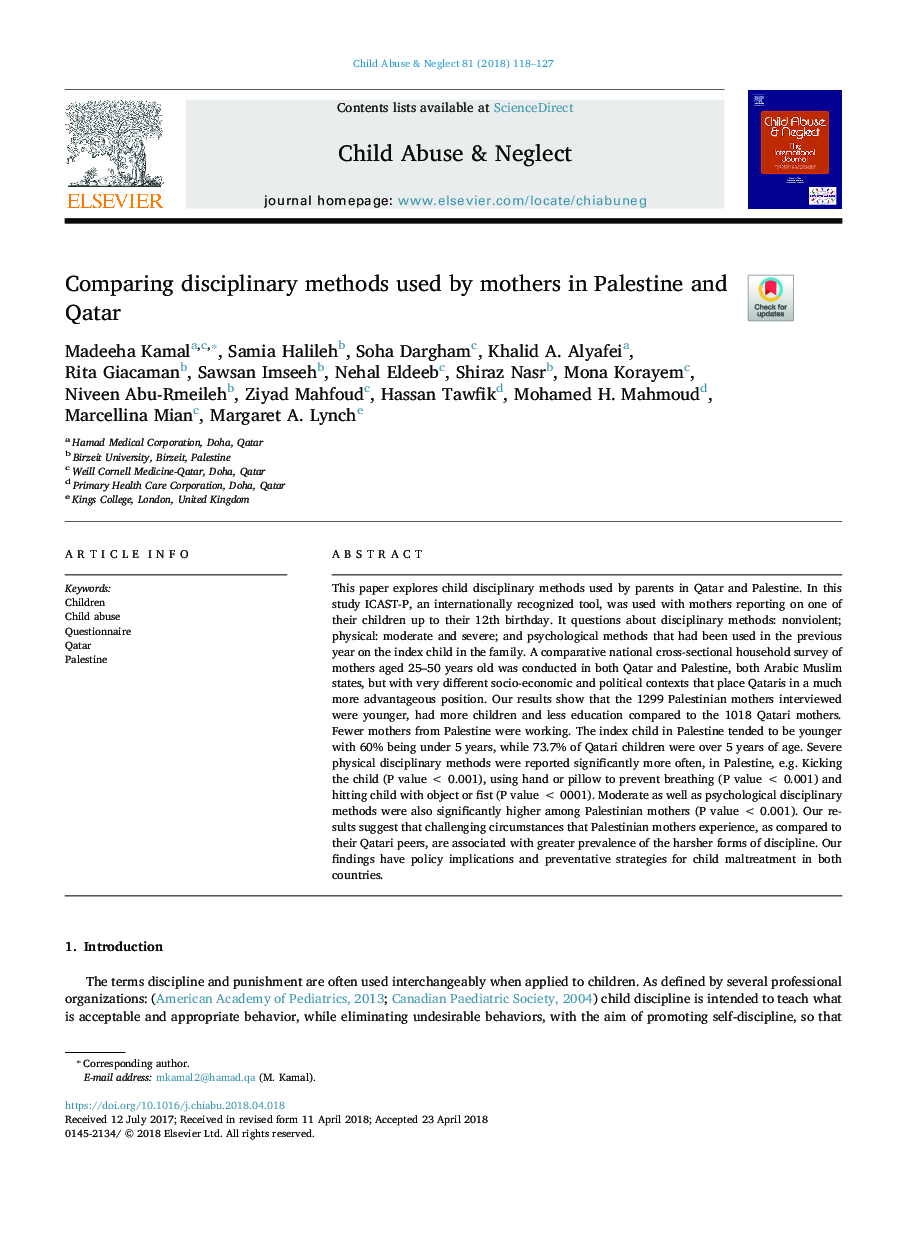| Article ID | Journal | Published Year | Pages | File Type |
|---|---|---|---|---|
| 6831836 | Child Abuse & Neglect | 2018 | 10 Pages |
Abstract
This paper explores child disciplinary methods used by parents in Qatar and Palestine. In this study ICAST-P, an internationally recognized tool, was used with mothers reporting on one of their children up to their 12th birthday. It questions about disciplinary methods: nonviolent; physical: moderate and severe; and psychological methods that had been used in the previous year on the index child in the family. A comparative national cross-sectional household survey of mothers aged 25-50 years old was conducted in both Qatar and Palestine, both Arabic Muslim states, but with very different socio-economic and political contexts that place Qataris in a much more advantageous position. Our results show that the 1299 Palestinian mothers interviewed were younger, had more children and less education compared to the 1018 Qatari mothers. Fewer mothers from Palestine were working. The index child in Palestine tended to be younger with 60% being under 5 years, while 73.7% of Qatari children were over 5 years of age. Severe physical disciplinary methods were reported significantly more often, in Palestine, e.g. Kicking the child (P valueâ¯<â¯0.001), using hand or pillow to prevent breathing (P valueâ¯<â¯0.001) and hitting child with object or fist (P valueâ¯<â¯0001). Moderate as well as psychological disciplinary methods were also significantly higher among Palestinian mothers (P valueâ¯<â¯0.001). Our results suggest that challenging circumstances that Palestinian mothers experience, as compared to their Qatari peers, are associated with greater prevalence of the harsher forms of discipline. Our findings have policy implications and preventative strategies for child maltreatment in both countries.
Related Topics
Health Sciences
Medicine and Dentistry
Perinatology, Pediatrics and Child Health
Authors
Madeeha Kamal, Samia Halileh, Soha Dargham, Khalid A. Alyafei, Rita Giacaman, Sawsan Imseeh, Nehal Eldeeb, Shiraz Nasr, Mona Korayem, Niveen Abu-Rmeileh, Ziyad Mahfoud, Hassan Tawfik, Mohamed H. Mahmoud, Marcellina Mian, Margaret A. Lynch,
